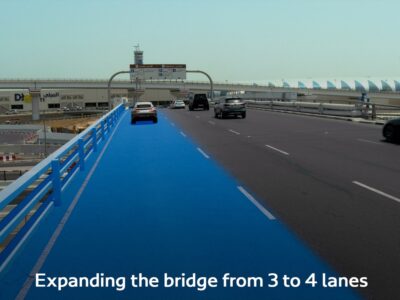Dubai’s Virtual Assets Regulatory Authority (VARA) has become the world’s first regulator aiming to provide a framework for financial entities to operate in the metaverse, including, among others, the bank and state services.
The fact that Dubai’s state regulator is the first to come up with such an initiative is notable, as the emirate is currently one of the world’s largest IT entrepreneur hubs.
Forecasts for 2022: Regulations underway
VARA’s initiative will initially focus on younger licensees, enabling them to enter the metaverse, “openly share knowledge and experiences with consumers and peer regulators to raise awareness, enable safe adoption, and drive global interoperability.”
Although it is unlikely that these projects will be delivered in 2022, the trend is clear: the integration of regulatory authorities into the metaverse has begun.
Where one entity enters, others will follow over time — and, as new digital regulations emerge, this integration will expand.
Potential obstacles. Can regulators keep up?
As the state regulators have their own authorised guidelines and strict security requirements, VARA will have to equip itself with new technologies.
It will start with the development of its own API, including the issue of a digital ID (which is just emerging nowadays).
Considering the metaverse is a global entity accessible by users from around the globe, the task won’t be simple.
As every region will set its own set of rules, the development methods for APIs and their capabilities will differ as well.
This notion goes double when you factor in digital IDs, as user information and privacy fall under even more regulations.
All these innovations require developers to have a thorough knowledge of relevant programming languages, as well as a complete understanding of metaverse architecture bases — such as usage of a well-developed trustless data storage and the nuances of building on top of decentralised networks.
Additional infrastructure to fulfill declared tasks
The API mentioned above will be required to integrate state and other regulatory structures into the metaverse as well.
It will have to be approved by each authority, while the details will differ based on the group and their region of origin.
To avoid contradictions and ambiguities, the community will need a unified regulation within the metaverse that all future APIs can abide by.

This is arguably a more difficult task, as it will require regulators to build policies surrounding a space they don’t fully understand.
Then there’s the question of if such a unified policy should be centralised or decentralised. If it is centralised, but everything on the metaverse is stored in a decentralised data centre, then additional problems will arise.
Still, if the policy is implemented in a decentralised way, then enforcing regulations can prove tricky.
Will regulators see success?
Coming back to VARA in Dubai, I believe the region shows the best standards of how a government can accept, implement, and integrate innovations.
After all, Dubai is already a known leader in terms of technological integrations and adoption.
Governments around the world keep promising such openness, but Dubai is one of the few regions where words have turned into deeds.

For example, communications between entities registered in the UAE pass smoothly and fast, mostly due to the lifting of regulatory barriers.
So if VARA is the first to enter and attempt to regulate the metaverse, chances are high that it will see success. Local IT businesses registered in Dubai will have no problems communicating with the UAE government, so those attempting to enter after VARA should have no issues doing so.
That streamlined communication means that new ideas and policies get to the right people as soon as possible.
In this way, state representatives can easily gather feedback on their initiatives — from ideas to implementation, and progress can continue to move forward.








